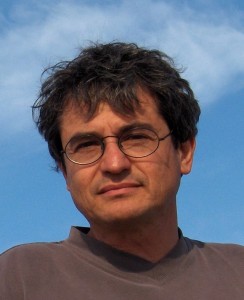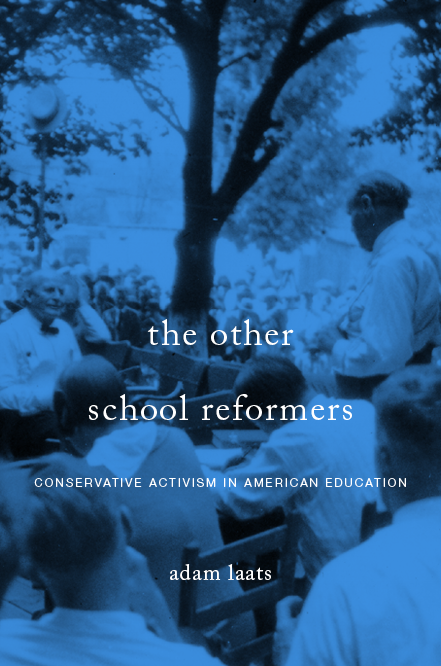ILYBYGTH is happy to welcome a new series of guest posts from Anna. Anna blogs about her experiences leaving the fundamentalist subculture at Signs You Are a Sheltered Evangelical. She holds an M.Sc. degree in Astroparticle Physics and currently lives in Virginia with her fiance Chelsey and a cat named Cat.
As a scientist, it’s a bit awkward for me to confess that I used to be a science denier. I would never have classified myself as such at the time. I would have called myself an intelligent, well-educated, critically thinking, aspiring physicist. Yet I was a fervent believer in 6-day Biblical creation, I staunchly disbelieved global warming, I thought homosexuality was a conscious decision to rebel against God, and I was deeply skeptical of any sort of environmental preservation initiatives, even though I was a devoted nature-lover. Yep, I was about as bad of a science-denier as they come.
Despite all of this, I cannot think too ill of my younger self for my ignorant beliefs. Admitting them is uncomfortable, of course, but largely because of misunderstandings in the secular and science communities regarding these sorts of beliefs and the people who hold them. The prevailing opinion is that science-deniers are stupid, uneducated, unable to think critically, and usually just too stubborn to admit they are wrong. I certainly am not going to excuse my former beliefs, but I also do not believe they were a result of stupidity, stubbornness or even a lack of research or study. The truth behind them is much deeper and more complex than most of my peers realize. This is why I am writing; I want to chronicle my transition from science-denier to scientist, hopefully helping others understand the anti-science mindset, the actions and attitudes that contribute to it, and the attitudes from my more science-savvy peers that made my transition either easier or harder.
If you are going to follow me on this journey, you will need to know who I am. My name is Anna. I am a mathematics instructor at a local career college and I also tutor students privately in higher-level math and physical sciences. I currently hold a Masters Degree in Astroparticle Physics from Jacobs University. I earned my Bachelors Degree in Physics from New Mexico Tech (where most of my transition occurred) and before then, I was homeschooled.
From kindergarten through 12th grade, I was taught at home with Christian-based curricula, and socialized in a staunchly fundamentalist Christian sub-culture. TV and video games were off-limits in my home, secular music was all-but banned until I was 17 or so, and my internet useage was strictly monitored. My world experience, therefore, was quite limited. I often laugh among friends that I grew up in the 1800’s, not just because I had to wear ankle-length skirts and waist-length hair for much of my young life, but because community isolation like this was very common 100 years ago. Indeed, being ignorant or skeptical of competing opinions and viewpoints would not have been considered closed-minded in an age before radio broadcasts, television, internet, cellphones, and national and international travel. It would have been normal. Human. That is how it was for me.
That is not to say that I was unaware of differing opinions or viewpoints. Rather, my sources for this information were almost exclusively biased. If I brought home a book from the library that mentioned the Big Bang, my parents would sit me down and explain how the book was wrong. If I saw an advertisement on a billboard that had a scantily clad woman posed on it, I would be told that it was a sign of the downfall of our nation and that it was wrong. If I read an article in the newspaper that held a left-leaning political viewpoint, a discussion would be opened about how this viewpoint was wrong. Without fail, ideas that fell outside of the realm of accepted ideas were dismantled, disproven, argued, or shown in a negative light. A negative reaction to such ideas then became instinctual. I lived in a never-silent echo-chamber of my subculture’s worldview.
And yet, through all of this, I was taught to think critically. Most of my peers were as well. The ability to rationalize, to argue and debate, to pursue knowledge, and to question authority was considered the peak of achievement and intelligence. Public speaking and debate were cornerstones of Christian homeschooling culture. “Never believe everything you read” was often on my mother’s lips. “Always question. Find things out for yourself. Never take someone else’s word for anything. Learn, grow, challenge.” That was my mandate… a mandate that eventually led me to rejecting the views that my culture espoused.
Many of my secular peers begin to disbelieve my story at this point, which I find very frustrating. The stereotypes about science-deniers, fundamentalists, and creationists run so deep that I have been called into question on my own life story. Some people don’t want to hear that people like me, like my family, like my community can be intelligent. They don’t want to hear that they encourage critical thinking and discussion. They want to call into question my family’s motives. “Obviously, they were just saying things like ‘question everything’ to make themselves feel better. All they wanted was a mindless drone and a copy of themselves. They were just lying to you.”
These comments are hard to swallow, because on one hand, I partially agree. My parents and community leaders certainly did not intend for me to turn out the way I did. And yet, I assert that they truly believed their motives were honest. They WANTED me to think, to learn, to question. They just honestly believed that all of that thinking, learning and questioning would inevitably lead me to validate their opinions. And unfortunately for them, they were wrong.
And so, before I delve more deeply into the culture of fundamentalist education, before I discuss my studies on creationism, my meetings with Ken Ham, my awkward debates with my college peers, and my sloooooow deconversion from science-denialism, I have a request to make: please listen. Please believe. Please be open to seeing me and the people I knew outside of the ignorant-hateful-redneck stereotype. My experiences and motivations were real, and much more complex than many people outside of that subculture realize. I am telling my story because I am tired of others (on both sides) thinking they can tell it for me. So, please respect me in that regard. Thank you, and I hope you enjoy the ride!







